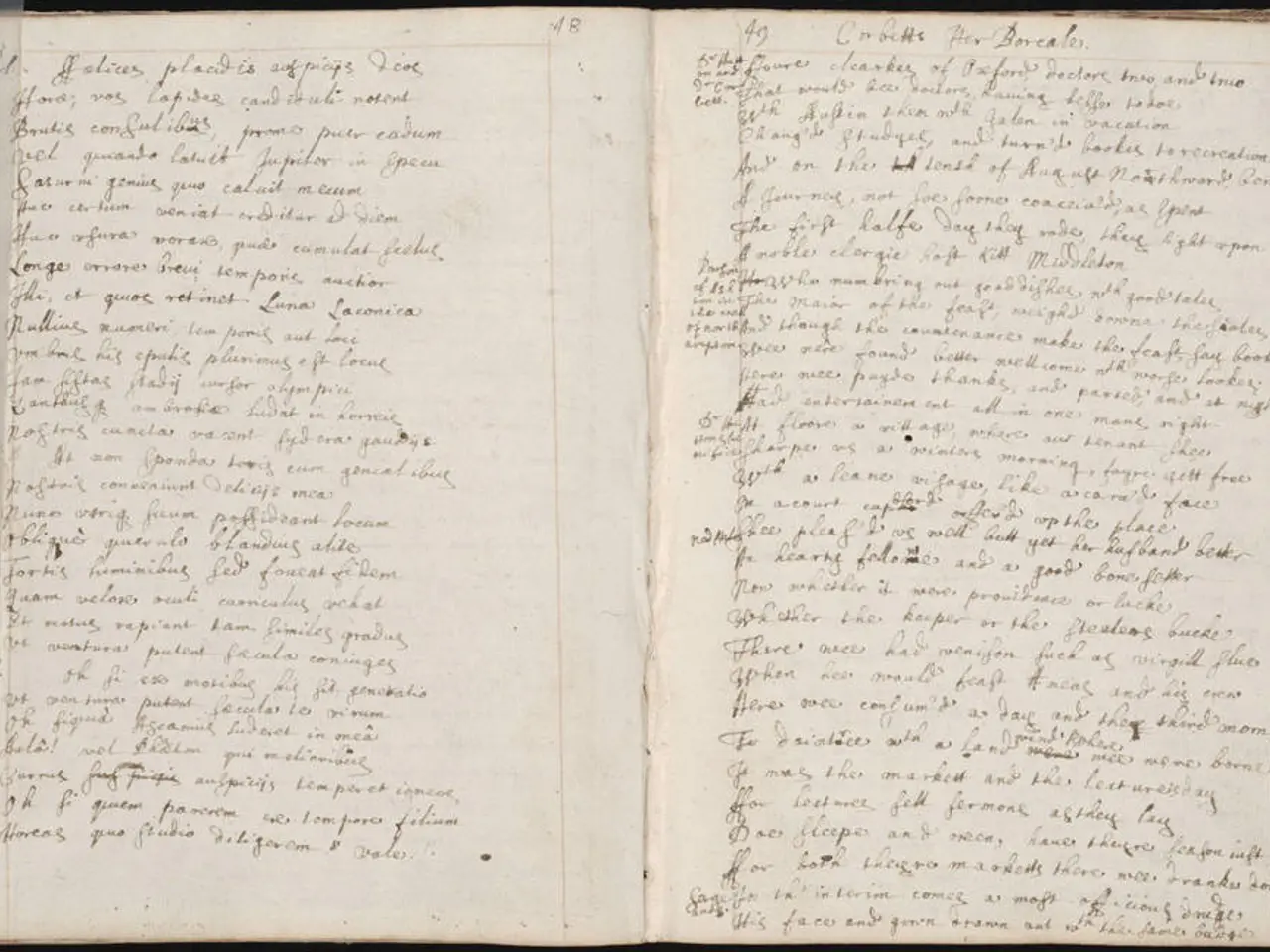Pondering Over the Topic While Composing
A story without a theme can often seem ungrounded and pointless. A theme, in the context of a story, is a universal truth about the human condition that illuminates the narrative. It is important in both fiction and nonfiction writing.
For instance, Angie Thomas' book, "The Hate U Give," may have been written to give others a glimpse of what it's like to be an African-American person in America. On the other hand, the author of "The Unicornologist," a YA mystical fantasy work-in-progress, aims to encourage readers to be open to the supernatural.
Having a theme in a story is crucial because it represents the central idea, message, or underlying meaning that ties the narrative together. A theme gives a story depth and significance beyond just the plot or characters. It shapes how readers interpret events and what lasting impression the story leaves. Themes often explore broad, universal ideas such as love, conflict, power, or identity that resonate across cultures and time, thereby making a story meaningful and memorable.
Authors can effectively identify and convey their story’s theme through several key approaches. First, they can identify the theme by examining core story elements like plot, character arcs, setting, tone, and conflicts. These components often work together to reflect the underlying message or thematic statement of the story.
Second, authors can think in abstract terms or universal ideas, distilling what the story is "really about" beneath its surface events. For example, a story about a dragon attacking a village might have a theme about "power corrupting innocence" or "fear causing destruction."
Third, authors should integrate the theme organically with characters and plot. The theme should emerge naturally from what characters do, say, and experience, rather than feeling forced or preachy. The interplay between strong plots and resonant character growth often produces powerful themes.
Fourth, authors should use subtlety and implication rather than overt statements. Themes are usually implied rather than explicitly stated, inviting readers to discover deeper meanings as they engage with the narrative.
Lastly, authors should consider all story elements including subplots and supporting characters as reinforcing or reflecting aspects of the theme to create a cohesive thematic tapestry.
In summary, the importance of theme lies in providing your story with a meaningful, unifying message that engages readers on a deeper level. Authors identify themes by analyzing their story’s core components and ensuring that plot and character development naturally express that central idea without being overly explicit. This approach enriches storytelling and leaves a lasting impact on the audience.
[1] Writer's Digest. (2021). The Importance of Theme in Fiction. Retrieved from https://www.writersdigest.com/writing-fiction/the-importance-of-theme-in-fiction
[2] The Balance Small Business. (2019). What is Theme in Fiction? Retrieved from https://www.thebalancesmb.com/what-is-theme-in-fiction-2949257
[3] LitCharts. (2021). The Importance of Theme in Literature. Retrieved from https://www.litcharts.com/lit/the-importance-of-theme-in-literature
[4] Purdue OWL. (2021). Theme. Retrieved from https://owl.purdue.edu/owl/subject_specific_writing/fiction_writing/theme.html
[5] The Spruce Crafts. (2021). What is a Theme in a Story? Retrieved from https://www.thesprucecrafts.com/what-is-a-theme-in-a-story-1420207
- In the process of creative fiction writing, authors should examine core story elements like plot, character arcs, setting, tone, and conflicts to identify and convey their story’s theme effectively.
- To ensure a cohesive thematic tapestry in their work, writers should consider all story elements, including subplots and supporting characters, as reinforcing or reflecting aspects of the theme they aim to explore through their education and self-development in the field of writing.




